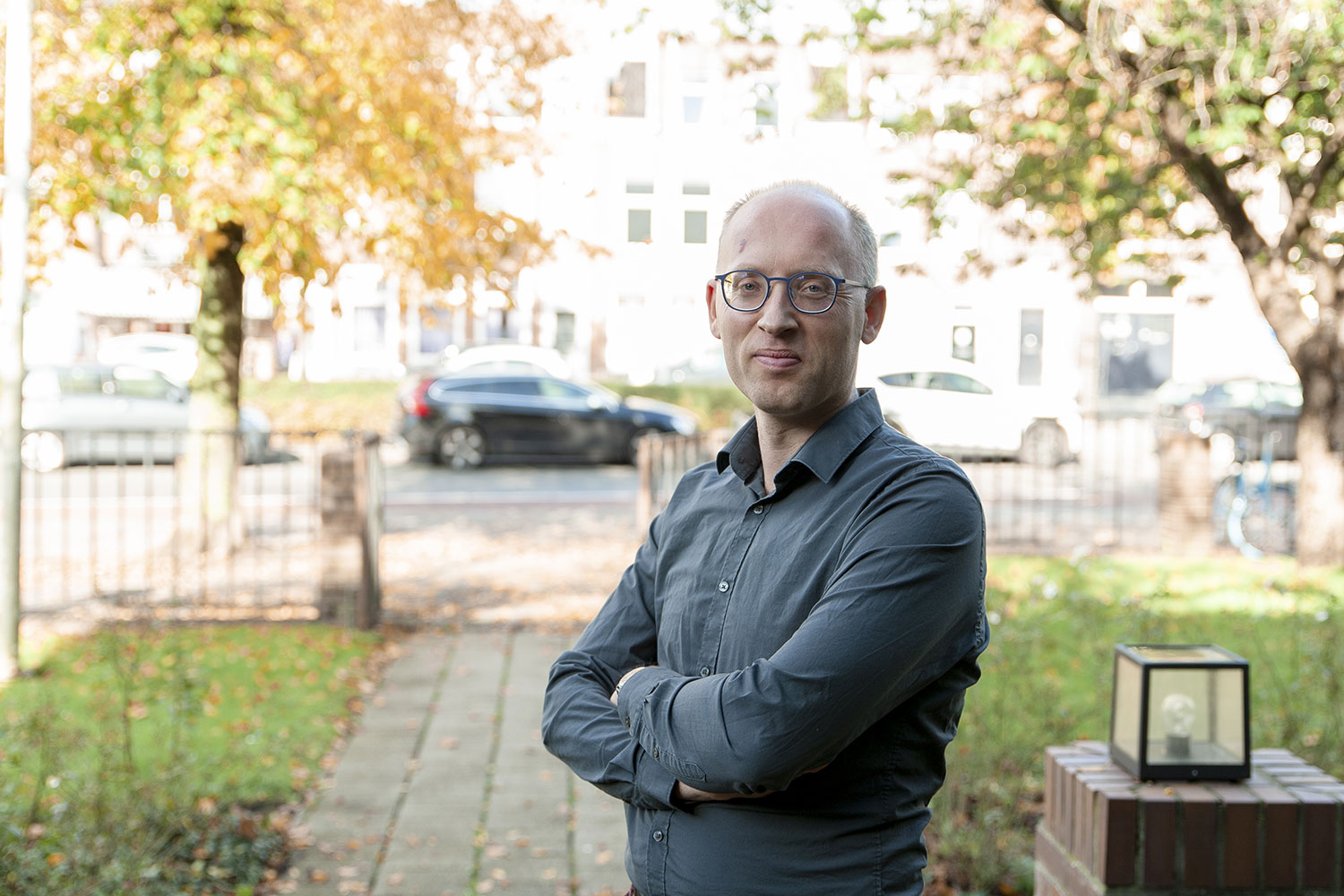The success of MOOCs and online teaching

When Tom Spits and his wife, a Rosalind Franklin Fellow, found themselves in the USA, he decided to spend a year focusing on the theory of education and online teaching. This has proved very useful in his job as MOOC coordinator in the Educational Support and Innovation (ESI) department of the University of Groningen (UG).
What is a MOOC?
‘MOOC stands for Massive Open Online Course. MOOCs are online courses that are offered free of charge throughout the world and are open to thousands of participants at the same time. The UG has published 18 of these MOOCs on the FutureLearn digital learning platform.’
What is the difference between a MOOC and other online courses?
‘MOOCs are quite similar to other forms of online teaching, apart from a few restrictions caused by the huge number of participants. A lecturer obviously cannot answer every question or provide everyone with feedback, so you have to make do with feedback from fellow participants and automated feedback. But there are also advantages to being in such a large group: there’s always someone who knows the answer to your question, for instance. Another advantage of MOOCs is the fact that they are complete bundles of knowledge that you can study whenever it suits you, and from which you can extract the information that you need. But this advantage can also be a pitfall. It means that you have to find the motivation within yourself and that it is easy to drop out of the course with no further consequences. Over 50 percent of participants don’t complete the MOOC that they start.’
Why does the UG develop MOOCs?
‘When I started in 2014, our main aim was to acquire knowledge. Could MOOCs help to improve on-campus teaching? Another aim was to share the top-class research being carried out at the UG with the rest of the world. In other words, global branding. We now realize that MOOCs complement the theory provided via on-campus teaching, and that they support blended learning (online teaching combined with contact teaching). But it would be difficult to fully integrate a MOOC into teaching, as they are very rarely 100% compliant and the timing is often wrong.’
Do you think that online teaching is improving higher education?
‘Yes! It’s the perfect way to stimulate interactive education and make it easier for students to work together (simultaneously but more importantly, asynchronously). Working together on a product online is much easier than having to arrange to meet at a specific time and place. In addition, you can re-use certain material or explanations in short videos so that students don’t have to come to lectures for that part of the lesson and so that contact hours can then be used for questions, discussion and implementation. It’s important to remember that technology is there to serve teaching and is not a goal in itself. We will always need face-to-face teaching, but online teaching can definitely enhance it.’
Can you tell us how you develop a MOOC in a few sentences?
‘It takes roughly 10 to 12 months to develop a MOOC. The first step is to sit down with the lecturers and think about the target group and how we can make the subject appeal to them. Lecturers have to learn to pare down the details of their designs, as we often only have a maximum of 16 hours of student workload to fill. Writing storyboards and being filmed can be new skills that don’t always come naturally to lecturers. But a bit of coaching does wonders, and Groningen now has an excellent reputation for the quality of its MOOCs. Two of them are in the Class Central’s Top 100 MOOCs of all time. This is quite an achievement, as thousands have been produced.’
Which MOOCs are the most successful, and have you any idea why?
‘When the General Data Protection Regulation was introduced our ‘Understanding the GDPR’ course was a huge success among professionals. They suddenly needed to learn about data protection and so countless people signed up for this course. Our ‘Young People and their Mental Health’ course is also worth mentioning. Even the tenth run had over 4,000 registered participants. And then there’s the ‘Introduction to Dutch’ course, which is an unprecedented success with almost 180,000 registered participants. Nobody saw that coming!’
How are we doing on a national scale in terms of supply and participants?
‘Delft University of Technology and Leiden University have invested a lot more in MOOCs and have a much wider reach and portfolio. But relatively speaking, we are doing exceptionally well. We produce two or three new courses per year and we now boast 475,000 participants. Quite an impressive figure if you ask me.’
Can you think of a must-make subject for a new MOOC?
‘A MOOC featuring Ben Feringa would gain world-wide acclaim, but a more niche subject such as deafblindness would also be perfect for the UG. After all, we have Marleen Janssen, the only professor in the world to hold a chair in this field. We will be working on another eight MOOCs over the next two years. They include one on medical literacy and one on computational social science.’
More information
- Contact: Tom Spits
- Our online courses
More news
-
15 September 2025
Successful visit to the UG by Rector of Institut Teknologi Bandung
